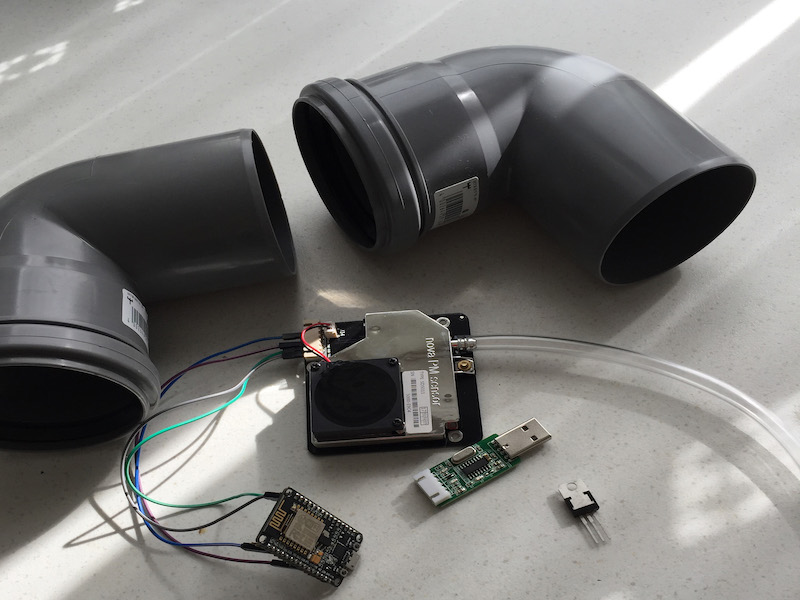6
Marlit Pfefferle
Seit 2017 ist das Thema Feinstaub aktuell, ausgelöst durch eine Initiative in Stuttgart. Diese Stadt hat, bedingt durch die Lage, wirklich Schwierigkeiten mit Feinstaub. Stuttgart ist eine “Auto-Stadt“, natürlich nicht nur, aber durch die Ansiedlung von zwei großen Automobil-Werken bewegen sich sehr viele Autos in der Stadt. In unserer Öko-Stadt Freiburg, mit einem “grünen” OB, wird dieses Thema natürlich auch sehr heftig diskutiert.
Ich fand eine kleine Info in unserer Tageszeitung, dass zu diesem Thema ein Vortrag gehalten würde, von einem Mitarbeiter des OK Lab Stuttgart. Dieser Vortrag war sehr interessant. Es wurde ausführlich über die Größe der Feinstaubpartikel und deren Wirkungen auf den menschlichen Körper und seine Gesundheit gesprochen. Auch auf die offizielle Karte wurde eingegangen, in der die aktuellen Werte verschiedener Messstationen regelmäßig eingetragen werden, so dass jeder die Werte in seiner eigenen Umgebung zeitnah ablesen kann.
https://deutschland.maps.sensor.community/#6/51.165/10.455
Auch zum Mitmachen wurde eingeladen unter dem Motto “Luftdaten selber messen“. Das hat mich sehr interessiert, zumal mir die benötigten Teile von dem Workshop bei SLO Senioren nutzen Mikrocontroller schon bekannt waren.

Auf den Vortrag folgte gleich der praktische Teil. Alle benötigten Komponenten wurden ausgeteilt, und ca. 30 Personen begannen die Teile mehr oder weniger geschickt zusammen zu basteln.
Eine genaue Anleitung zum Basteln gibt es hier: https://luftdaten.info
Zu Hause musste ich die Software aufspielen und den Sensor an das WLAN anschließen. Über die App Fing kommt man dann direkt auf die Karte zu den aktuellen Feinstaubwerten. Jetzt ist auch mein Messgerät zu einer der vielen Messstationen geworden, die auf der Karte angezeigt werden.
Das hat auch das Team von SLO angeregt, Feinstaubsensoren zu basteln und anzuschließen, so dass nun auch im hohen Norden Senioren ihre Messwerte in die offizielle Karte eingeben und damit zeigen können, dass die Fährschiffe auf der Ostsee stark zur Feinstaubbelastung beitragen.
The topic of particulate matter has been present since 2017, triggered by an initiative in Stuttgart. Due to its location, this city really has problems with particulate matter. As a location of two large car manufacturers, Stuttgart is an “automobile city”. Of course not only that, but there is far too much traffic in the city. In our eco-city Freiburg, with a “green” mayor, this topic is debated quite a lot.
I found a little piece of information in our daily newspaper that a lecture was being given on this topic by an employee of the “OK Lab Stuttgart”. This talk was very interesting. The size of fine dust particles and their effect on the human body and health were discussed in detail. The official map of particulate matter distribution was also dealt with, in which the current values of various measuring stations are regularly entered so that everyone can see the values in one´s own surroundings.
https://deutschland.maps.sensor.community/#6/51.165/10.455
Themed “measure air data by yourself” we were invited to participate. I was very interested, especially because I was already familiar with the parts required. Earlier I had participated in a workshop at SLO about the topic “Seniors Use Microcontrollers”.

The practical part immediately followed the lecture. All the necessary components were handed out, and about 30 people began to assemble the parts more or less skillfully.
Here you can find detailed instructions on how to do the handicraft : https://luftdaten.info
At home I had to install the software and connect the sensor to the WiFi. The Fing app then takes you directly to the map with the current particulate matter values. Now my measuring device has also become one of the many measuring stations that are shown on the map.
My work also stimulated the SLO team to tinker and connect particulate matter sensors so that seniors in the far north of Germany can now enter their measurements in the official map , thus showing how ferries in the Baltic Sea contribute significantly to particulate matter pollution.
